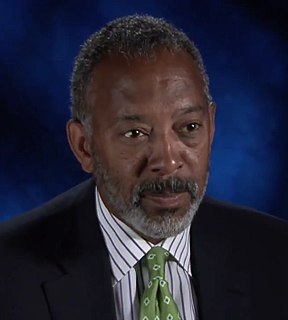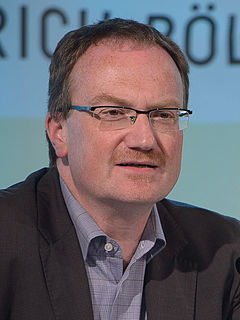A Quote by Larry Page
If you ask an economist what’s driven economic growth, it’s been major advances in things that mattered - the mechanization of farming, mass manufacturing, things like that. The problem is, our society is not organized around doing that.
Related Quotes
According to the management expert Peter F. Drucker, the term "entrepreneur" (from the French, meaning "one who takes into hand") was introduced two centuries ago by the French economist Jean-Baptiste Say to characterize a special economic actor-not someone who simply opens a business, but someone who "shifts economic resources out of an area of lower and into an area of higher productivity and greater yield." The twentieth-century growth economist Joseph A. Schumpeter characterized the entrepreneur as the source of the "creative destruction" necessary for major economic advances.
During the 1960s, and again in the 1970s, growth in manufacturing productivity in the United Kingdom was the lowest of all the seven major industrial countries in the world. During the 1980s, our annual rate of growth of output per head in manufacturing has been the highest of all the seven major industrial countries.
I would be remiss, as a scientist who studied this, if I didn't mention the following two things: The first is that, most importantly, we need to do, as a society, in this country and globally, whatever we can to reduce population"....."Our whole economic system is based on growth, and growth of our population, and this economic madness has to end.
The Second Wave Society is industrial and based on mass production, mass distribution, mass consumption, mass education, mass media, mass recreation, mass entertainment, and weapons of mass destruction. You combine those things with standardization, centralization, concentration, and synchronization, and you wind up with a style of organization we call bureaucracy.
I'm not in favor of no government. You do need a government. But by doing so many things that the government has no business doing, it cannot do those things which it alone can do well. There's no other institution in my opinion that can provide us with protection of our life and liberty. However, the government performs that basic function poorly today, precisely because it is devoting too much of its efforts and spending too much of our income on things which are harmful. So I have no doubt that that's the major single problem we face.
I think what is true is that there's been an underlying division in the United States. Some of it has to do with the fact that economic growth and recovery tends to be stronger in the cities and in urban areas. In some rural areas, particularly those that were reliant on manufacturing, there has been weaker growth, stagnation, people feeling as if their children won't do as well as they will.

































